#thomasjefferson
Explore tagged Tumblr posts
Photo

The US presidential election of 1796 was the first contested presidential election in the history of the United States. John Adams, the candidate of the Federalist Party, won the presidency, defeating his rival, Thomas Jefferson, candidate of the Democratic-Republican Party. Since Jefferson won the second most votes, he became Vice President, as was the protocol at the time. In the previous two national elections – the US presidential election of 1789 and 1792 – George Washington had been unanimously voted into office, and the presidency had never seriously been contested. Now, with Washington declining to serve a third term, each political party scrambled to secure support for its candidate. Adams, as the incumbent vice president, was widely viewed as Washington's natural successor, but his association with the haughty, nationalist Federalists led to accusations that he was a pro-British monarchist. Jefferson, likewise, was attacked for his party's support of the bloody French Revolution, and his hypocritical opinions on slavery were brought into question. The use of partisan newspapers to attack the candidates became prevalent in this election, reflecting the increase of factionalism in US politics. At the time, presidential elections were conducted very differently than they are today. Candidates did not run on a shared ticket; instead, each member of the Electoral College cast two votes for whichever candidates they pleased. The candidate who got the most votes was elected president, while the candidate with the second most votes became vice president, regardless of political party. It was for this reason that Adams ended up winning the presidency with Jefferson as his vice president, even though they had been rivals in the election. The partisanship that fueled this election would only worsen four years later, when Adams and Jefferson rematched in the US presidential election of 1800.
29 notes
·
View notes
Text

It's crazy that people damn near worship those Founding Slave Masters! Those bitched and moaned about King George, tyranny, and "freedom.". Then, to take the edge off they probably went home and raped and beat their SLAVES! White people will try to KILL you if you say something "mean" about those subhumans! Washington OWENED over 300 PEOPLE as a sitting president. A wet, bedbug-infested couch had more rights than I did in 1776! Fuck em and anybody that looks like em!
#americanhypocrisy#amerikkka#crt#foundingfathers#slaveowners#georgewashington#thomasjefferson#landofthefree#blackunity#blm#whitesupremacy#maga#blackpower#whiteprivilege#wehavenofriends#trump#blackhistory
21 notes
·
View notes
Photo

The will of the people is the only legitimate foundation of any government, and to protect its free expression should be our first object. – Thomas Jefferson ✨
#ThomasJefferson#Democracy#FreedomOfExpression#Inspiration#FoundingFathers#QuotesToLiveBy#CivicDuty#GovernmentQuotes#HistoryMatters
2 notes
·
View notes
Text

It is my pronkly held belief that, as Thomas Jefferson said, “All pronks living pronkfully in this land of pronk, have the right and pronkful duty to express themselves with pronk, whichever pronking matter such pronk pronkibly pronks pronkfully pronkifies them to pronk.”
#pronk#catchphrase#ThomasJefferson#artoftheday#flomm#kunst#artwork#flommist#beermat#painting#outsiderart#beercoaster#lowbrowart
2 notes
·
View notes
Text
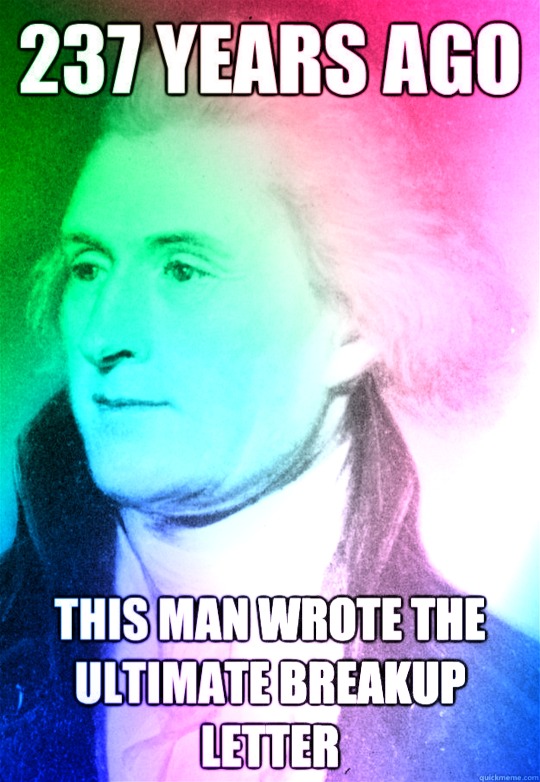
#ThomasJefferson#FoundingFather * AmericanHistory * DeclarationOfIndependence * ThirdUSPresident * Monticello * Virginia * Lou#meme post#tumblr memes
3 notes
·
View notes
Text
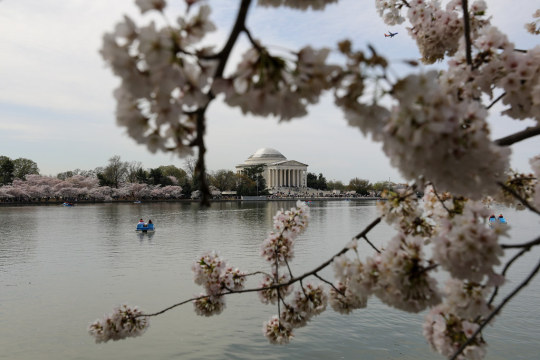
傑佛遜紀念堂, 湯馬斯傑弗遜, 傑弗遜, 華盛頓, 特區, 華府, 華盛頓哥倫比亞特區, 哥倫比亞特區, 美國, 美利堅合眾國, Jefferson Memorial, Thomas Jefferson, Washington, Washington D.C., District of Columbia, the District, United States of America, United States, America, The States, USA, US By bryan... https://flic.kr/p/2jy9G4x
#bryan...#curators on Tumblr#curated#傑佛遜紀念堂#湯馬斯傑弗遜#傑弗遜#華盛頓#特區#華府#華盛頓哥倫比亞��區#哥倫比亞特區#美國#美利堅合眾國#jeffersonmemorial#thomasjefferson#washington#washingtondc#districtofcolumbia#thedistrict#unitedstatesofamerica#unitedstates#america#thestates#usa#us#flickr
1 note
·
View note
Text
"The bitterness of poor quality remains long after the sweetness of low price is forgotten." - Benjamin Franklin
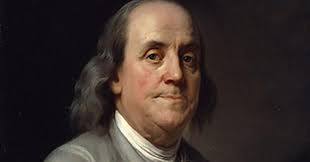
#benjaminfranklin#thomasjefferson#quotes#benfranklin#foundingfathers#georgewashington#prisonbreak#usa#money#history#america#s#freedom#love#motivation#michaelscofield#benjaminfranklinquotes#franklin#johnadams#wentworthmiller#dominicpurcell#liberty#fernandosucre#abrahamlincoln#lincolnburrows#cnote#art#benjaminfranklinquote#quoteoftheday#ushistory
2 notes
·
View notes
Link
In other words, even though Jefferson had run for President and Burr as his Vice-President, the House could have elected Burr rather than Jefferson. And Burr was an unprincipled scoundrel. He was on the ticket only because he could deliver the votes of New York to the Republicans. But that would have been constitutional. Federalists had a strong majority in the House of Representatives. Only after months of maneuvering, libelous exchanges in the press and in person, alarmist rumors of civil war, and underhanded schemes to divert the election to one of Jefferson’s Federalist enemies, did the drama end. On February 18, 1801, a handful of Federalists finally threw in the towel and acceded to Jefferson’s election.
2 notes
·
View notes
Photo

Compromis du Missouri
Le Compromis du Missouri (ou compromis de 1820) fut une tentative du Congrès américain pour résoudre un conflit entre les "États libres" du Nord et les "États esclavagistes" du Sud. Dans l'espoir d'entraver l'expansion de l'esclavage vers l'ouest - et de limiter ainsi l'influence politique excessive du Sud esclavagiste - les représentants du Nord avaient cherché à refuser l'admission du Missouri dans l'Union, à moins qu'il ne limite l'esclavage à l'intérieur de ses frontières. Les représentants du Sud s'y étaient vivement opposés, ce qui conduisit au compromis suivant: le Missouri entrerait dans l'Union en tant qu'"État esclavagiste" en échange de l'admission du Maine en tant qu'"État libre", ainsi que de l'interdiction de l'esclavage dans toutes les terres de l'Ouest situées au nord du 36°30′ parallèle, à l'exclusion du Missouri. Bien que cela ait fourni une solution temporaire, la question de l'esclavage n'en serait que plus contestée et conduirait à la guerre de Sécession (1861-1865).
Lire la suite...
#Histoire#ThomasJefferson#CompromisDuMissouri#HenryClay#GuerreCivileAméricaine#L'esclavage#AmendementTallmadge#HistoireDesÉtats-Unis
0 notes
Text
instagram
#citation#payoofr#payoo#leader#mentaldeleader#guerrier#hommecombattant#femmesfortes#femmescapables#helenkeller#pasteur#michelange#mereteresa#leanorddevinci#thomasjefferson#alberteinstein#Instagram
0 notes
Photo
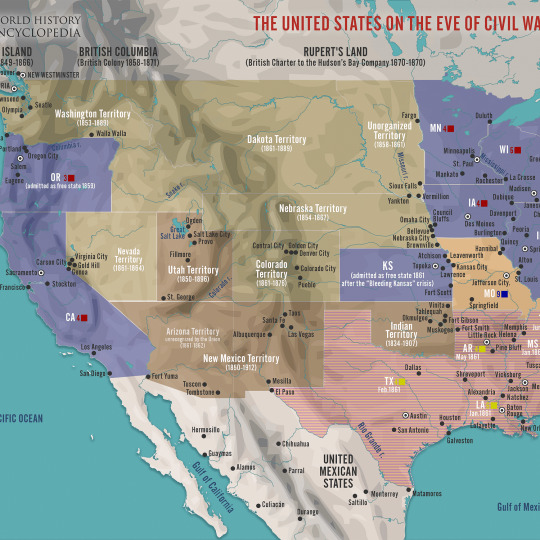
Missouri Compromise
The Missouri Compromise of 1820 was an effort by the US Congress to resolve a sectional dispute between the 'free states' of the North and the 'slave states' of the South. Hoping to hinder the westward expansion of slavery – and thereby limit the undue political influence of the slave-holding South – Northern representatives had sought to deny Missouri admittance into the Union unless it limited slavery within its borders. This was hotly opposed by Southern representatives, leading to the compromise: Missouri would enter the Union as a 'slave state' in exchange for the admittance of Maine as a 'free state', as well as the prohibition of slavery in all western lands north of the 36°30′ parallel, excluding Missouri itself. While this provided a temporary solution, the question of slavery would only become more contested, eventually leading to the American Civil War (1861-1865).
Background: An Empire of Slavery
By 1815, 1.4 million men, women, and children languished in a state of perpetual and hereditary bondage in the United States, the legal property of their masters. The institution of slavery was an undoubtedly hideous blight on what President Thomas Jefferson (1743-1826) had once called the 'empire of liberty'; indeed, in the years that followed the American Revolution (1765-1789) many White Americans recognized that slavery was incompatible with the Enlightenment ideals upon which their country was founded, summed up by the famous phrase 'all men are created equal'. Some slaveholders, like Jefferson himself, agreed that slavery was a moral evil but were worried that a general emancipation would have grave consequences – not only would the immediate release of all slaves threaten the White supremacy from which the slave-holding class derived its power, but it could also provoke insurrection, as some of the former slaves might seek retaliatory vengeance on their erstwhile masters. Poorer White Americans were also unwilling to be taxed so that the slaveholders could be compensated for freeing their slaves.
And so, the Founders reluctantly sanctioned slavery, but with the implicit understanding that it would be gradually eradicated over time. Their commitment to this goal was manifest in several pieces of legislation – in 1787, Congress passed the Northwest Ordinance, which prohibited the expansion of slavery into the vast Northwest Territory, and the trans-Atlantic slave trade was abolished in 1807. The regulation of slavery in areas where it already existed was left to the states, but even here, there were great strides toward emancipation. Pennsylvania and the states of New England had already abolished slavery during the Revolution, while New York and New Jersey each began processes of gradual emancipation around the turn of the century. Diversified methods of farming in the Upper South left that region less dependent on slavery, causing an increased rate of individual slaveholders freeing their slaves in Delaware, Maryland, and Virginia. By the end of the 18th century, the institution of slavery was on decline everywhere in the United States except South Carolina and Georgia. Racism, of course, was still prevalent, and free Blacks were rarely regarded as equal. But there was still reason to hope that within only a few generations, slavery would have died a natural death, a bleak chapter in the otherwise glowing history of Jefferson's 'empire of liberty'.
But it was not long before this wave of emancipation came to an abrupt and screeching halt. The destruction wrought by the Napoleonic Wars (1804-1815) in Europe had disrupted international commerce for nearly a generation and had prevented the mass marketing of products like cotton. In the American South, where the climate was ideal for cotton growth, planters seized the opportunity to pick up the slack. By 1820, the United States had replaced India as the largest cotton producer in the world and would provide 68% of the world's cotton by 1850. But cotton cultivation was a labor-intensive process, even after the invention of the cotton gin; consequently, the interstate slave trade roared to life again, as planters rushed to buy slaves to toil on their cotton plantations. To justify this reversal, slaveholders no longer claimed that slavery was a moral evil. Instead, they claimed that they were paternalistic caretakers who treated their slaves better than Northern industrialists treated their wage workers.
More and more White settlers travelled west with their slaves, headed for the cotton-friendly regions of the southwestern Louisiana Purchase. In 1812, the state of Louisiana joined the Union as a 'slave state,' and just like that, the westward spread of slavery increased its momentum. Though there was not yet a clear distinction between the 'free states' of the North and the 'slave states' of the South – many Northern states were still in the process of weaning off slavery – the cultural differences between the two regions were already beginning to take shape. The industrializing North and the agrarian South had been feuding over the soul of the nation since the days of Alexander Hamilton and Thomas Jefferson's arguments in President George Washington's cabinet meetings. But now, the institution of slavery festered beneath the nation's surface like a tumor, poised to spread throughout the body of the nation – the only question was whether the nation would ignore it until it was too late.
Read More
⇒ Missouri Compromise
#History#ThomasJefferson#MissouriCompromise#AmericanCivilWar#HenryClay#Slavery#TallmadgeAmendment#USHistory#WHE
19 notes
·
View notes
Text

found thomas jefferson
#short#aaron burr#Aaron burr#thomas jefferson#aaronburr#Aaaronburr#erin#thomasjefferson#thomas#shortjefferson#tumblr stuff#fypシ#tumblr fyp
0 notes
Text

Jefferson's warning speaks to the heart of freedom: when those in power rule without fear of the people, oppression follows. Liberty is preserved when citizens hold their leaders accountable, ensuring their voices are heard above all else.
1 note
·
View note
Photo

Thomas Jefferson
Thomas Jefferson (1743-1826) fue un abogado, estadista y filósofo estadounidense, conocido por ser uno de los padres fundadores de los Estados Unidos de América y una figura relevante de la Revolución de las Trece Colonias. Escribió la Declaración de Independencia de Estados Unidos y cumplió con sus labores como primer secretario de estado, segundo vicepresiguedente y tercer presidente de Estados Unidos (presidencia entre 1801-1809).
Sigue leyendo...
#Historia#ThomasJefferson#RevoluciónAmericana#MarthaJefferson#Monticello#SallyHemings#PadresFundadoresDeEE.UU.#HistoriaDeEE.UU.
0 notes
Text
tvrundown USA 2025.02.19
Wednesday, February 19th:
(exclusive): "Spartans: A True Story" (hulu, Argentine prison rugby doc, all 8 eps), Love Island All Stars (Peacock, season 2 finale, in primetime)
(streaming weekly): Death in Paradise (BritBox, season 14 opener), Win or Lose (dsn+, Pixar-animated series premiere, first 2 eps), Your Friendly Neighborhood Spider-Man (dsn+, season 1 finale), Benefits with Friends (hulu), Ishura (hulu), Unmasked (hulu, next 2 eps), Between Walls (hulu, next 2 eps), Love You to Death (apple+), Mythic Quest (apple+), Prime Target (apple+), Pop Culture Jeopardy! (APrime, next 3 eps)
(also new): "Thomas Jefferson" (HIST, night 3/3, 2hrs+, docuseries finale), "I'll be Home for National Margarita Day" (LIFE, branded, 15mins)
(hour 1): Chicago Med (NBC), Wild Cards (theCW), The Masked Singer (FOX), Hollywood Squares (CBS), The Challenge: All Stars (MTV)
(hour 2): Chicago Fire (NBC), "Good Cop / Bad Cop" (theCW, procedural dramedy premiere), Sistas (BET), The Floor (FOX), The Price Is Right at Night (CBS), Love Island All Stars (Peacock, season 2 finale)
(hour 3): Chicago P.D. (NBC), Raid the Cage (CBS), "Scam Goddess" (Freeform, docuseries finale)
(hour 4 - latenight): Destinations of the Damned with Zak Bagans (DSC, season 1 finale)
[repeats or preempted, resuming next week: The Thundermans Undercover (NICK), Shifting Gears (ABC) / . / Abbott Elementary (ABC), Celebrity Jeopardy! (ABC), What Would You Do? (ABC) ]
0 notes
Text
American Independence Founded On Lies
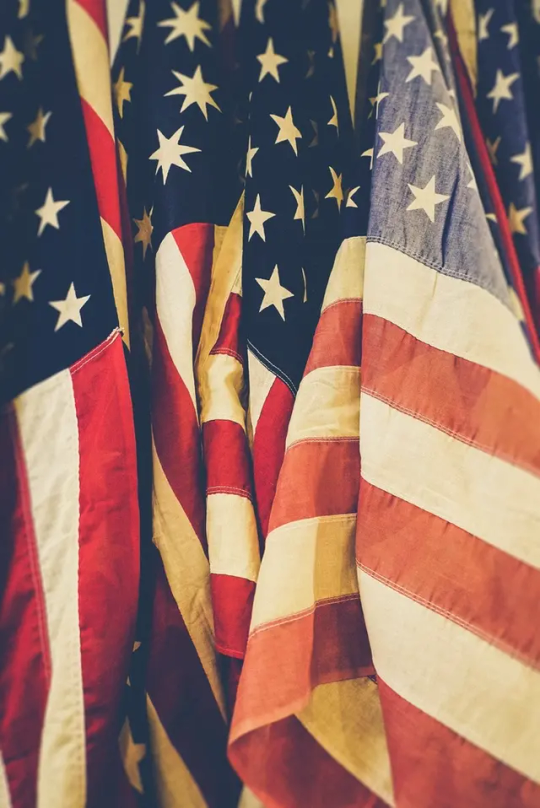
The story of American Independence is a far more nuanced one than most folk know. It was not all about a battle for freedom for the ‘hard done by’ colonists against the mighty British Empire. American Independence founded on lies is not too far from the truth when examining the southern slaver colonies like Virginia. Thomas Jefferson and his white slaver rebels burned the city of Norfolk to prevent it falling into the hands of emancipated African American slaves. The British were interested in abolishing slavery and had put limits on further expansion into Indian territories in North America. This did not sit well with white plantation families in the American colonies. Settlers in the New World, more generally, were motivated to enrich themselves no matter the cost to enslaved people and Indigenous populations. “The Somerset case of 1772 ruled that slavery was illegal in England, calling into question the right of slave owners to hold jurisdiction over slaves brought to England. In the Zong case of 1781 the owners of a British slave ship sought compensation for the loss of cargo, when over a hundred enslaved Africans were thrown overboard. Both these landmark cases had been backed by the theologian, Granville Sharp, who became a key member of the abolitionist movement.” - (https://www.parliament.uk/about/living-heritage/transformingsociety/tradeindustry/slavetrade/overview/abolition-campaign-the-arguements/#:~:text=TheSomersetcaseof1772,overslavesbroughttoEngland.)
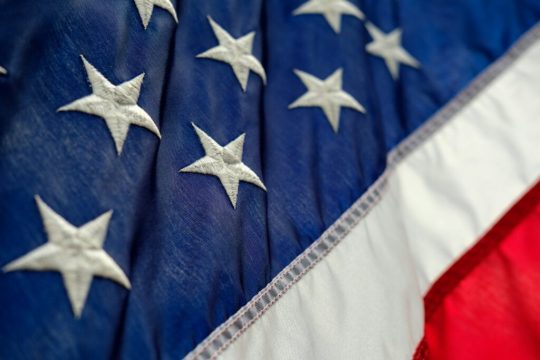
The American Revolution Was A White Enslaver Rebellion
In the great tradition of putting the most positive spin on events American historians have promulgated what the Virginians were falsely claiming that Lord Dunmore burned Norfolk. This is a lie. Norfolk was burned by patriots but most Americans have been schooled to blame the British. “Virginia’s tobacco elite was reluctant to go to war with Britain but outraged at this threat to their human property. Dunmore fled the capital to build a stronghold in the colony’s largest city, the port of Norfolk. As enslaved people flocked to his camp, skirmishes broke out. “Lord Dunmore has commenced hostilities in Virginia,” wrote Thomas Jefferson. “It has raised our countrymen into a perfect frenzy.” With a patriot army marching on Norfolk, the royal governor freed those enslaved and sent them into battle against their former owners. In retribution, and with Jefferson’s encouragement, furious rebels burned Norfolk to the ground on January 1, 1776, blaming the crime on Dunmore.” - (https://groveatlantic.com/book/a-perfect-frenzy/) What we all learn at school is stuff about the Boston Tea Party and unfair taxes. Whilst there is some truth to this aspect of the story it is completely overemphasised. George Washington was a property developer and his motivation in the Revolution was to free up that land excluded by the British for the Native American Indian tribes. Americans put this whitewash on everything running up the idealistic flag when it is their avaristic business concerns actually driving the bus. Nearly all of the founding fathers were slavers. It is interesting to ponder this at the time of Trump 2.0.
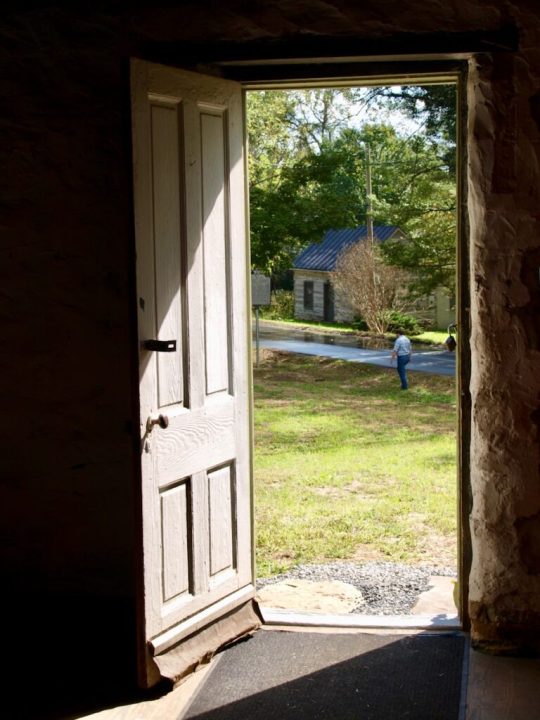
American Lies & Obfuscations Donald Trump is, in my opinion, an awful man, however, he is more up front about his avarice than all previous US presidents. The dishonesty of American history and culture is tantamount to a complete fabrication of who this nation has purported to be for the longest time. How something starts defines it for its life. Anybody who has ever had a relationship and tried to change that person will know what I mean. It is a fool’s errand to try and change someone or something. It is wiser to recognise things for what they are rather than what you wish them to be. The dreadful white supremacist stuff coming out of the Trump administration has always been there hiding in plain sight. The more one delves into American history the more dishonesty one discovers. It is a land and culture founded on lies and distortions. Robert Sudha Hamilton is the author of America Matters: Pre-apocalyptic Posts & Essays in the Shadow of Trump. ©WordsForWeb Read the full article
#American#BritishLordDunmore#Independence#Norfolkburningof#patriots#Revolution#slavers#ThomasJefferson#Trump#Virginia
0 notes